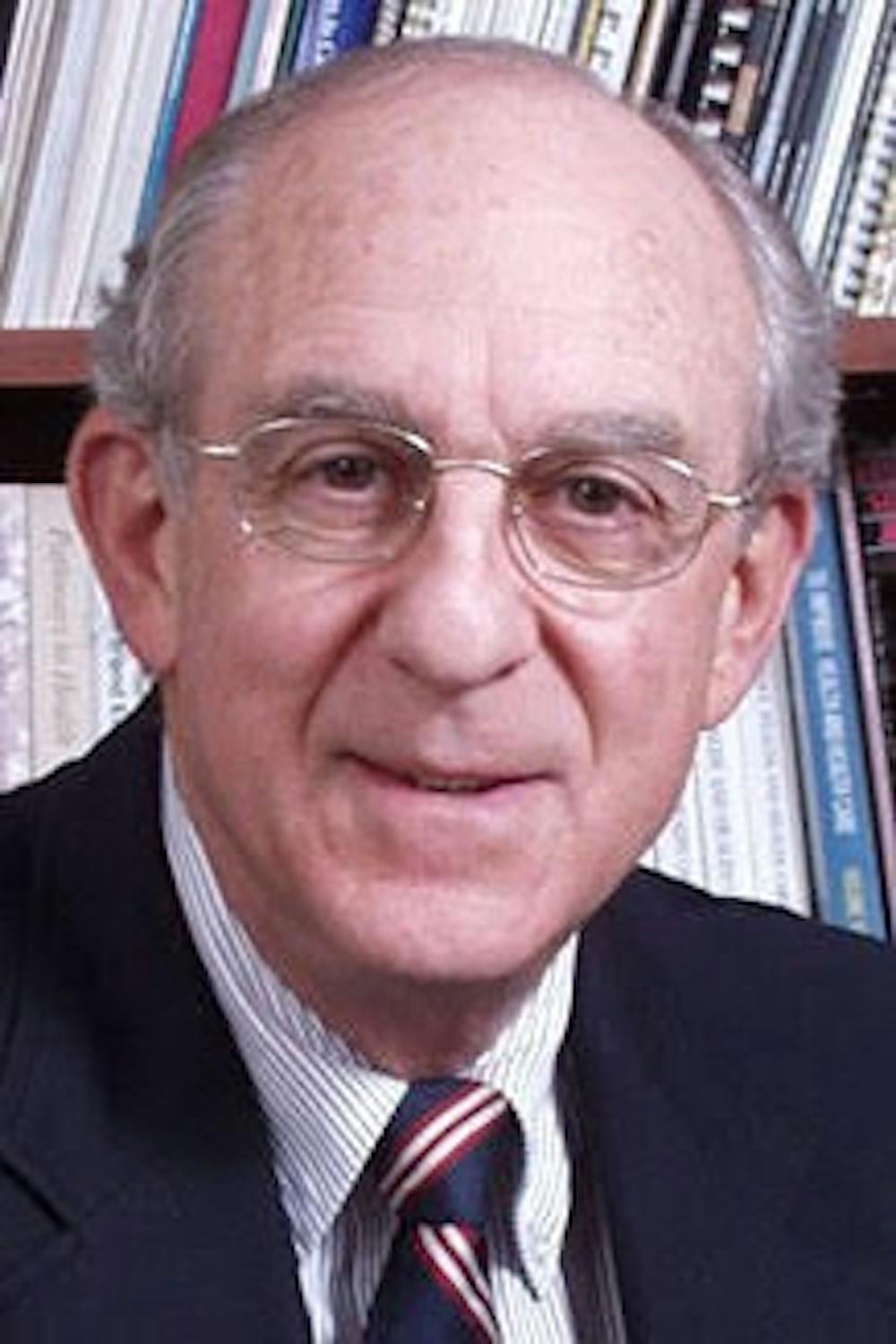Recently, the Penn community lost one of its finest members — a doctor, researcher, leader and teacher.
On Jan. 15, Richard “Buz” Cooper passed away from pancreatic cancer complications at 79 years old in New York. Cooper, a hematologist and oncologist, was the founder of Penn Medicine’s Abramson Cancer Center and a senior fellow at Penn’s Leonard Davis Institute of Health Economics. The news came just a few days after Vice President Joe Biden visited the Cancer Center to launch a national effort to find a cure.
Cooper spent part of his early career at the National Cancer Institute. After witnessing Dr. Emil Frei and Dr. Emil J. Freireich’s medical breakthrough of treating childhood acute leukemia using combination chemotherapy in 1963, he knew that expanding and building up cancer research was something worth fighting for.
“It was an extraordinary experience to see these children with a heretofore fatal disease respond to this first-time-ever treatment,” Cooper told the American Society of Clinical Oncology in an interview in early 2015. “It was truly a remarkable time in oncology, and I wanted to be part of it.”
After his stint at the NCI was over, Cooper joined Penn in 1971 and wrote Abramson’s first grant proposal to create the center — NCI Core Support Grant— which is currently renewed for its 40th year. His drive and commitment were key in establishing Abramson and making it one of the few cancer centers in the country with NCI Cancer Center status. He served as the director of the center from 1977 to 1985 before returning to his hometown of Milwaukee and building up the University of Wisconsin Medical College.
Although Cooper was a physician and scientist, he was known for his staunch stances on public health policy.
He returned to Penn in 2005 as a senior fellow in the Leonard Davis Institute, and during this time he became one of the first to say that the country faced a shortage of doctors — contrary to the popular view of the American Medical Association and the Association of American Medical Colleges who posited that there was an oversupply of medical students.
Cooper’s work showed that they did not take into account factors such as population growth in their calculations, and in later years these associations changed their stances and medical schools across America increased enrollment.
“Buz will be remembered as a great example of a health policy expert who was fearless in standing up for his beliefs and relentless in developing research support for his ideas. He will be missed,” LDI Executive Director Dan Polsky said in an announcement of Cooper’s death.
The last phase of Cooper’s career was spent on researching poverty and healthcare. He challenged the Dartmouth Atlas by saying that the wide range in Medicare costs in different parts of the country stemmed from different poverty levels. After he was diagnosed with cancer, he raced to complete his book, “Poverty and the Myths of Health Care Reform,” which will be released by Johns Hopkins University Press this summer.
Linda Aiken, Penn Nursing School professor and director of the Center for Health Outcomes and Policy Research, who worked closely with Cooper said he was “charming, thoughtful and generous” as well as an “innovative thinker.”
In addition to working with Cooper on policies involving nurses taking on increased responsibilities in medical care, she said that he was a frequent lecturer in her classes.
She added that despite his busy schedule, he would always make time for students and that he was a very friendly, approachable person. Her students enjoyed Cooper’s guest lectures and when speaking with the students, he created a safe space for them where they could express their views while he presented a way of thinking that was not the common mindset.
“He was incredibly humble and cared about people. He wasn’t one of those cold physicians. He was extremely warm and extremely human,” his son Jonathan Cooper said. “There’s a lot I’ll miss.”
Cooper is survived by his wife, son, daughter and three grandchildren. In place of flowers, donations can be made to Abramson Cancer Center.
The Daily Pennsylvanian is an independent, student-run newspaper. Please consider making a donation to support the coverage that shapes the University. Your generosity ensures a future of strong journalism at Penn.
DonatePlease note All comments are eligible for publication in The Daily Pennsylvanian.





